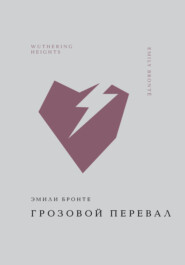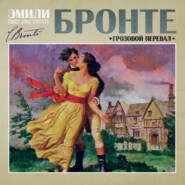По всем вопросам обращайтесь на: info@litportal.ru
(©) 2003-2025.
✖
Fame and Wuthering Heights
Автор
Год написания книги
2019
Настройки чтения
Размер шрифта
Высота строк
Поля
This time, however, the excitement had been replaced by unadulterated anxiety. How the hell was Dorian – was anyone – supposed to be creative with so much financial pressure? He knew Milla Haines was right. He had overpaid for Viorel. What Milla didn’t know was that only two million of Hudson’s salary was being paid out of the official production budget. The other three million Dorian would have to find out of his own pocket. After the disastrous Sixteen Nights, he needed to blow the box-office roof off with Wuthering Heights. If he didn’t, he’d be ruined. It was that simple. He’d lose Chrissie. He’d lose the Schloss.
He tried not to think of how happy that would make Harry Greene. Twisted, delusional bastard. But it wasn’t going to happen. He’d been burned on Sixteen Nights, the movie Greene had helped bury, but with Wuthering Heights, Dorian had a new strategy.
Step one was to shroud the production in secrecy, to generate as much buzz and curiosity as possible. He was shooting the whole thing on location, far away from the Hollywood gossip machine. (Assuming they ever found a damn location. So far the expensive scouting firm he’d hired to find them somewhere in England had come up with sweet FA.) All the sets would be strictly closed. Everyone connected with the movie – cast, crew, even the accountancy staff – had been made to sign watertight confidentiality clauses and any actor or crew member who said so much as ‘good morning’ to a member of the press would be summarily fired.
Step two was to wait until all the creative work was done and shooting was almost wrapped, and then go looking for studio investment and a shit-hot distribution deal. By then, if the work was good, and it would be good, excitement about the film should be at its peak.
We’ll be fine, Dorian told himself. But his nerves persisted.
Parking his hired Prius out front (he’d had to sell the Bentley last year, a small contribution to the Schloss’s first winter heating bill), he staggered through the front door to the welcoming sound of a beeping burglar alarm. Dropping his bags he punched in the code to turn it off and almost went flying on the stack of unopened mail spilling all over the entryway floor like an oil slick.
‘Jesus Christ,’ he muttered, reaching for the light switch. Nothing happened. The bulb must have blown. A musty smell of dust and stale air assaulted his nostrils. No one had been here for almost a month and it showed. Dorian realized sadly that the tile-hung, Spanish-style estate no longer felt like home. He wondered if anywhere would ever feel like home again, then chided himself for being so maudlin. He was dog-tired, that was all. He needed to get into a hot shower, call Chrissie and collapse into bed.
The phone rang.
‘Rasmirez,’ he answered crossly. Who the fuck could be calling him at this time of night?
‘Wow, man, you sound like shit.’
Dorian grinned. ‘Thanks, Emil. I feel like it.’
Emil Santander, Dorian’s long-time friend and real-estate agent, sounded as upbeat and ebullient as ever. Emil and Dorian had been at film school together many moons ago, but their directorial careers had taken wildly different trajectories. Undaunted by his failure to become the new James Cameron, Emil had quit the business ten years ago, studied for his real-estate licence, and not looked back since, making a good, if unspectacular living selling the homes of his more successful classmates. He was just that kind of guy: upbeat, optimistic, uncomplicated. A dust-yourself-off-and-start-again-er. Dorian envied him.
‘It’s late, man,’ Dorian yawned. ‘I’m wiped out. Is this important or can I call you in the morning?’
‘It’s important,’ said Emil. ‘And, it’s good news.’
‘I could use some of that,’ said Dorian, wryly.
‘I got you a great offer!’
‘Oh.’ Dorian exhaled. This was unexpected. When he first left for Romania a year ago, he’d asked Emil to ‘keep his ear out’ for a potential buyer for the Holmby Hills house. But having heard nothing back, he’d forgotten all about that conversation. If Chrissie had the slightest suspicion he was even thinking of selling the place, she’d have sliced his balls off with a rusty penknife. As much as she had always bitched and moaned about LA, she adored their house, and had spent a not-so-small fortune renovating and decorating it to her exact specifications. But the reality was, if Dorian could achieve a good enough price for it, he would have to sell. At the rate the Schloss was eating money, not to mention his production debts, there was no way they could afford to run such a huge house in absentia.
‘Jeez,’ grumbled Emil. ‘Don’t overwhelm me with enthusiasm, will you?’
‘Sorry,’ said Dorian. ‘I’m just … how great, exactly?’
Part of him hoped the offer would be low enough to reject. Then he wouldn’t have to broach the subject of a sale with Chrissie, who was already spoiling for the next fight. But another, more rational part prayed it would be high enough to cover his debt on Viorel Hudson’s salary.
‘Pretty great actually,’ said Emil, unable to keep the triumph out of his voice. ‘About eight and half million bucks’ worth of great.’
Dorian quickly did the math. Eight five, minus four million mortgage, minus the lien he’d raised two years ago when Sixteen Days was going under, minus the excess on Hudson’s fee … he would break even, with a few hundred grand left over for a modest apartment in Santa Monica, somewhere to crash when he was working. Good news indeed.
‘That’s awesome, Emil. Thank you.’
‘You’re welcome. Now just to be clear, is that “Thank you, I accept the offer”? Because I’m bringing the paperwork round first thing tomorrow morning for you to sign. The buyers want to meet you.’
Dorian’s heart sank. ‘Tomorrow? Oh, jeez man, I’m flat out tomorrow. Can we do it later in the week?’
‘Helloo?’ said Emil. ‘Are you hearing me here, D? I just got you eight point five for a house that you and I both know is worth six on a good day. These guys are big fans of your work and they wanna meet you. Tomorrow.’
Dorian groaned. ‘OK.’
‘They’d also like to move in by the end of the week. I told them that shouldn’t be a problem.’
Fifteen minutes later, too tired to shower, Dorian lay back on his bed fully clothed. Feeling sleep start to creep over him, he quickly grabbed the phone and punched out his Romanian home number. He wouldn’t tell Chrissie about the house sale tonight. He couldn’t face the fireworks. He just wanted to hear her voice and to say good night. To tell her he loved her. And Saskia, of course.
The phone rang and rang … no answer.
That’s weird, thought Dorian. It was early morning over there, before six, but Chrissie was usually up at this time. She was fanatical about her sunrise yoga. He hung up and tried the line again, forcing images of Chrissie writhing naked in Alexandru’s arms out of his mind.
Still no answer. She must have gone out earlier than usual. Or maybe she’s in the shower already. Can’t hear the phone. I’ll try again in a few minutes.
He closed his eyes, just for a second. A movie reel of images danced through his brain.
Sabrina Leon, that beautiful, truculent child, her feline eyes glinting murderously at him across the table at Il Pastaio.
Chrissie, moaning with pleasure in some nameless lover’s bed.
Emil Santander handing him wodges of hundred-dollar bills, but as soon as the notes touched his hands they crumbled into dust, staining his fingertips ash-grey.
Harry Greene laughing.
At last the anxiety dreams faded and Dorian saw a house: grey, imposing, bleak, its shuttered windows being mercilessly lashed by rain. He recognized it instantly as the Wuthering Heights of his boyhood imagination. It was a forbidding building, cold and aloof, and yet to Dorian there was something wonderfully comforting about it, and about the lulling swoosh, swoosh sound of the rain as it fell, enveloping everything in a cool, grey shroud.
He was asleep, the phone still clasped in his hand.
CHAPTER SIX
‘Hey, Mum, guess what?’ It was the third time Abel Crewe had asked this question in the last minute. ‘If a dinosaur fell over, it would die.’
‘Would it?’ said his mother absently. ‘My goodness.’
Tish and Abel were in the back of a taxi, on their way home to Loxley from Manchester Airport. Tish’s eyes were glued to the familiar, craggy beauty of the landscape outside. She’d thought about it every day since she’d been away, but she realized now that she’d forgotten just how breathtaking the Peak District really was. This afternoon a light rain was falling, but a few pale sun rays fought their way bravely through the clouds, bathing the jutted tops of the Pennines in a soft, celestial light. With the exception of the odd crumbling farm-worker’s cottage, this stretch of the Hope Valley was devoid of buildings, and seemed barely touched by man. After the ugly urban sprawl of Oradea, it was a blessed relief for Tish’s senses, and she drank it in like a hummingbird gorging on nectar.
Abel, on the other hand, was far more interested in talking than sightseeing. If there were an Olympic team for not-drawing-breath, Tish’s five-year-old son would surely have been appointed captain.
‘Do you know why it would die?’ he asked, not bothering to wait for a reply. ‘Because dinosaurs are allergic to falling over. Like I’m allergic to mushrooms. What are you allergic to, Mum? Some people aren’t allergic to anything, also some animals aren’t, but some are, like monkeys. Not giraffes, though. Unless they ate a log. That would prob’ly get stuck in their necks and then … hey, look, another tractor! Seven! That’s seven, Mum! I’m gonna be seven, after I’ve been six. Where’s my birthday gonna be again? At home, or in In-ger-land? Can I have two parties?’
‘England,’ corrected Tish, who was only half listening. ‘Not Ing-er-land. Try to stop talking just for a few minutes Abi, OK? We’re almost there.’
The taxi took a left turn and the road narrowed sharply as it climbed and weaved its way around the hillside. Occasional farms gave way to grey stone houses, their walled front gardens bereft of flowers other than the occasional early snowdrop bravely rearing its flimsy white head above the muck. This was the outskirts of Loxley village. Tish felt her heart soar as they passed each familiar landmark: Bassets Mill, Mr Parks’s farm, the abandoned dovecote that the local children used as a makeshift climbing frame-cum-treehouse. A few moments later and they were in the village proper.
A five-times-winner of Britain’s Best Kept Village competition, Loxley was small but perfectly formed. It had a triangular green that was bisected by a tributary of the Derwent, which villagers had crossed for centuries by means of a Saxon stone footbridge. On one side of the green stood the post office and village shop. On the other was the perfectly preserved Norman church, St Agnes’s, and on the third, the focal point of all village life great and small: The Carpenter’s Arms pub.
‘What do you think, darling?’ Tish hugged her son excitedly.
‘It’s really pretty!’ Abel grinned. ‘It’s like a picture from my book.’ His sweet, snub nose was now glued to the window. Villages, apparently, were a lot more interesting than fells. ‘Is it a park? When does it close?’

















